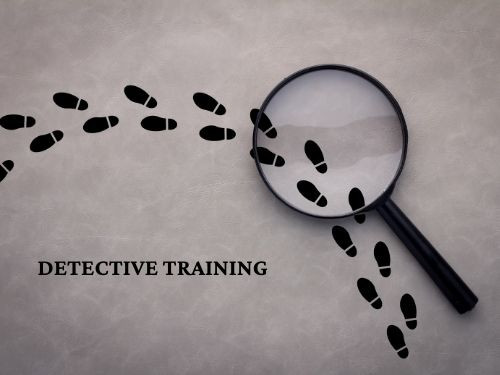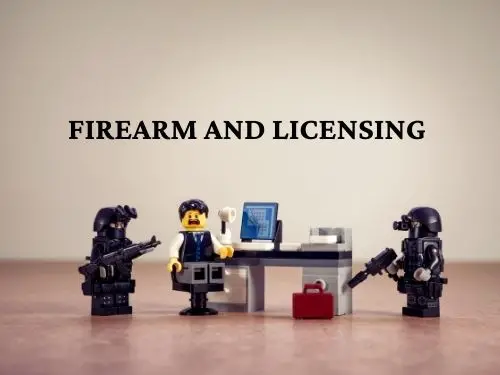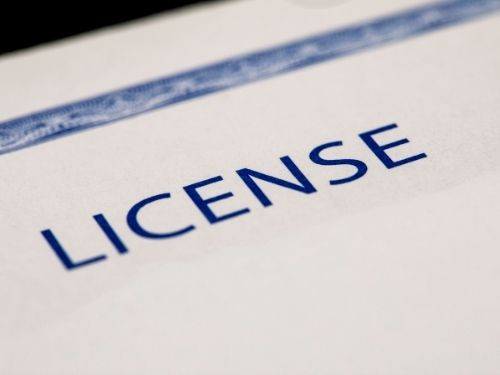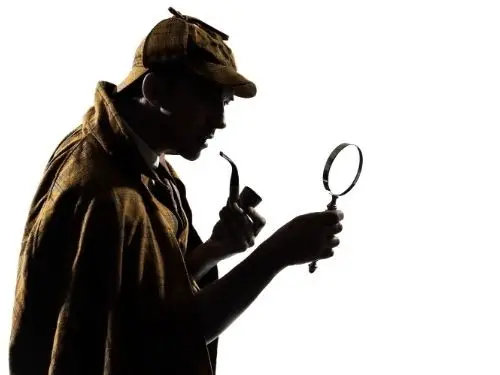How to become a Detective
This article provides in-depth information into What is Detective? What Detectives do? Degrees for Detectives, Steps to become Detective and much more.
A private detective is an independent professional to conduct and investigations under the law services by collecting suitable evidence, analyze the facts regarding the case. The risks involved in this profession are high and include a confrontation with criminals, personal injury, and even death. to become a detective, there's are specific steps, degrees and requirements you need follow which is detailed in this career guide.
What does Detective do ?
They are licensed to conduct tests and investigation on the crime, accident, property loss, threats at state, local and national levels.
Some of the duties of a detective involves,
-
Conduct interviews with the suspects and witness
-
Identify the potential suspects in the case
-
Examine the facts and records of the case
-
Investigate on the specific situation to collect evidence
-
Determine the identity, character, their movements, location and affiliation
Steps for becoming Detective
1
Complete The Formal Training
To start off with the career path, you must have a high school degree as a minimum requirement, however other states may require you to have a formal education in private investigation, criminal justice or related field. Some states may also require you to have hands-on experience in the field for about 4,000 to 5,000 hours.

2
Gain Experience
Most of the states require the candidates to have several hours of professional experience. Here are some positions listed for you to gain experience in the respective fields to earn a license according to the state requirements. they are,
-
Law enforcement officer
-
Insurance adjuster
-
Military police officer
-
Arson investigator
-
Licensed repossessor
-
Public defender’s office investigator
-
Member of an investigative service unit in a branch of the United States Armed Forces
-
An investigator at a federal investigative agency

3
Complete Firearm And License Training
While Applying for the license you could apply for an armed or unarmed investigation license. As a detective, you are not allowed to carry a weapon unless you have a firearm permit. Hence if you want to apply for an armed license, you must get a formal firearm training course. After the successful completion of the firearm training, it must be approved by the state. This is an optional step but this gives you the responsibility to arrest the suspects on the field.

4
Clear The License Exam
After completing the license application, you must submit it with your passport photos, fingerprint, background information for verification and the application fees. After your application gets approved, you get the opportunity to write the exam sponsored by the state agency. This exam comprises multiple choice objective type questions covering the state law and regulations, surveillance, undercover investigations, insurance and liability, handling evidence and civil liability.

5
File An Insurance Policy
As a detective, you are generally required to have an insurance policy of $10,000 or a bond file with the licensing state agency to conduct an investigation and other procedures. Some states may also require you to file a larger insurance policy to cover your death, danger or any injuries that may occur. You must always be aware of the state insurance policy while you file the application for the licensing.

6
Land On Job
The application procedure may be time-consuming and could take about 90 days to complete. After clearing the licensing exam, you get a license to work legally in the state. You could seek employment at government agencies, private organizations, corporations. Due to the knowledge and caliber of the detectives, the employment opportunities are increasing rapidly.

Detective Degree Levels
Certificate
A certification course is a short term program that takes a few months or less than a year. This gives the foundational skills and understanding of concepts that are required for the licensing. The courses vary from two to three courses to complete a program with multiple semesters. Students cover the concepts of the legal system, criminal and civil investigations, and investigation specializations. Also, learn about the duties of a detective, ethics, how to conduct investigations, find evidence, and report.
Foundation to Criminal Justice System
-
The course provides details of the criminal and justice systems with an overview of the crime, justice, law enforcement, the legal process and the corrections system.
Objectives
- Understand the relationship between the difference between criminal and social justice
- The legal justice systems
- Legal proceedings
Introduction to Law enforcement
- The course gives an introduction on the history of law enforcement, development at state and federal levels and including the role of municipal police.
Objectives
- Understand the functions and importance of police activities
- Conduct criminal, internal and external investigations
- Roles and tasks of the law enforcement
Foundations of corrections
-
This course gives the foundational knowledge on the philosophy of the correctional systems and its principles. This includes sentencing and paroleing.
Objectives
- Understand the guidelines in sentencing
- Adult criminal behavior
- Community-based corrections
Associate
An associate's degree is a two years program that gives 60 to 66 credit hours for the students to complete the course. The program covers more courses than the certification program in the investigation fields such as corrections, corporate security and law, the relationship between its components, namely law enforcement, corrections and the courts which helps for the advancement of the profession. The advantage of the degree is it acts as a stepping stone for the bachelor's degree and the credits can be easily transferred.
Law and private Investigations
-
Understanding of the law proceedings, the investigation process for private and government organizations. The topics range from insurance to ethical issues and also assisting the attorney by providing evidence regarding cases.
Objectives
-
Understand the criminal law systems
-
Preservation of evidence
-
Privacy term of laws and issues
-
Evidence management
Civil Investigations
-
Provides an understanding on the civil investigations, policies, and law enforcement for issues regarding the insurance, workplace, domestic violence, and insurance casework.
Objectives
-
Conduct civil investigations
-
Reviewing public records
-
Investigation on personal reports
-
Conduct search on assets
Private investigation techniques and strategies
-
Teaches students about the role of the private investigator and the planning, organization and execution of an investigation.
Objectives
-
Interviewing witnesses
-
Taking notes and writing reports
-
Forensic information and crime scene investigation
-
Providing court testimony
Bachelors
It is a four-year program that usually offers credits hours of up to 120-160 for you to complete the course. The courses help in gaining knowledge on the subjects such as criminal justice, the administration of law enforcement, the role of the courts and rehabilitation within the corrections system. Students also get to explore the criminal law and the procedure to prepare for post-degree opportunities.
Introduction to Criminal Law
-
This course teaches about the history and evolution of criminal law in the United States, profiles of specific criminal offenses.
Objectives
-
Classification of the criminal acts
-
Understand the behavioral aspects of the crime
-
Identify specific criminal offenses
Criminal investigations
-
The course offered helps students understand the methodologies of private investigations and the use to apprehend suspects. The topics under this course include crime scene recording, collecting evidence and interrogation.
Objectives
-
Exhibit leadership and management skills in profession
-
Use suitable methodologies to conduct an investigation
-
Use suitable tools to preserve evidence
-
Learn interviewing techniques
Security Management
-
This course is to understand the security management of the information and data being collected. Also understand the preservation of online information, manage data and record in private and public organizations. Topics include asset protection, operational issues and security duties.
Objectives
-
Protection of assets
-
Security of financial data and transaction
-
Manage the risk included with the roles
Masters
The Master's degree typically takes two to three years to complete the course. This helps students to enhance their researching skills and also gain administrative or leadership positions as a detective. During the program, students learn the concepts of the criminal justice system, including corrections, juvenile justice and criminology.
Community Corrections
-
This course details the advanced concepts of how correctional-based programs can be developed, traditional institutional or prison-based rehabilitation.
Objectives
-
Correctional program development
-
Understand the Probation programs and Parole programs
-
Community diversion programs
Criminal Data Analysis
-
This course is to help students understand the concept behind data collection regarding the case , how to collect data, conduct analysis, interpret the results and secure data sets used throughout the criminal justice system.
Objectives
-
Collection of data
-
Conducting interviews
-
Analyze the data statistically
-
Data policy and security
Modern Policing Issues
-
This course offers an overview on the modern law policies and enforcement.The concepts studied in this course include organized crime, civil disturbances, crime reporting to dealing with public reaction to crime.
Objectives
-
Learn modern law policies
-
Understand the concept of Administrative staffing
-
Evolution of the law enforcement on issues
Detective salaries
According to the Bureau of Labour Statistics of 2020, the average salary offered to the detective is about $65,110 and it typically ranges between $52,606 and $78,735. The salary depends on the education, certification, additional skills, and the experience you have in the profession.
Job growth
The job of a private detective has increased in recent years due to the need of securing private data online, identity theft, forgery, and others. Hence according to the BLS, job growth is expected to have an increase of 8 percent in the period of 2018 to 2028. There are addition of 35,000 jobs and this growth is estimated to have faster growth than an average job.
Job concentrations
As a detective, you could choose to work at various cases as well as work at different fields to target more areas during work. Here are some career concentration listed for you,
Legal Investigations:
Some detectives also work for the attorney for better analysis of the case by conducting an investigation on the suspects, collecting evidence and repairing case litigations in the fields such as criminal law, personal injury, civil law or worker’s compensation. Their duties may also include the documentation, review of public records, law procedures and others. The salary offered for this job is an average of $41,610 per year.
Insurance Investigations:
The insurance investigator is a professional who may work as a subcontractor with insurance agencies, private and government organizations to interview witnesses, review records, collect evidence on the home insurance, life insurance, worker's compensation, health insurance, auto insurance and other related cases. The average salary offered for the employee is about $48,950.
Financial Investigations:
Financial investigators are professionals who serve in areas such as asset tracking, corruption, bribery, money laundering and accounting fraud. Their roles include the verification of records, accounting, tax evasion, and examining financial records for an attorney. They use computer systems and accounting knowledge to the source, trade, transaction and flow of money. The earning of a financial investigator is up to $48,950 annually.
Corporate Investigations:
Corporate investigators are specialized in conducting external and internal investigations related to corporate and workplace issues. The roles include identification of thefts, workplace violence, property theft, fraud, maintaining financial records, cases regarding sexual harassment, analyze security risks and others. The median salary offered for this job is about $45,610 per year.
Computer Forensics:
Computer forensics investigators are trained individuals in analyzing and collecting digital data that can be produced as evidence in front of the court. Their roles may include recovering the deleted emails, messages, computer files and examining the records that got forged. The average salary offered for this job is about $56,320 per year.
Stand out skills for a Detective
The detective stands out in his job when they develop essential skills such as collecting the information and facts regarding the case, analyzing them, collaborating with others, teamwork and maintaining confidentiality. In addition to these, here are some stand out skills to be developed to excel in the career.
Professionalism: Professionalism comes with experience and as a detective, you must be sensitive to situations and information and materials carefully in a proper manner. While interacting with the suspects and witnesses, you must be pay attention and collaborate with integrity to maintain credibility
Creativity: When you are approached by a client with challenging cases, there could be situations where you use your thinking capabilities. While thinking technically, you must include the creativity to come up with better solutions. Creativity plays an important role in the investigation.
Communication: communication is key in this profession where a detective requires strong verbal and written skills in their work to maintain records, documentation. They must be clear in their interaction with their teams, clients, colleagues and also importantly while conducting interviews.
Confidentiality: When the private investigations are conducted, the detective must make sure the information or facts collected doesn't get leaked. Hence they must operate work discreetly and confidentiality. This helps in gaining client confidence.
Self-Motivated: They must be a self-motivated individual as sometimes they may not have a team and have to work independently. Hence enthusiasm and confidence is required to work. While overcoming the challenges. Self-motivation and self-direction are key for success.
| Minumum Credit Score | Apply in as little as | Variable APR | Fixed APR | ||
|---|---|---|---|---|---|
 | Not Available | 15 minutes or less | 2.95 | 4.74 | View disclosures |
 | 620 | 2 minutes | 5.38%-16.99%1 | 4.43%-16.99%1 | View disclosures |
 | Not Available | 15 minutes | 1.13% - 11.23%¹ (with autopay) | 3.50% - 12.60%¹ (with autopay) | View disclosures |